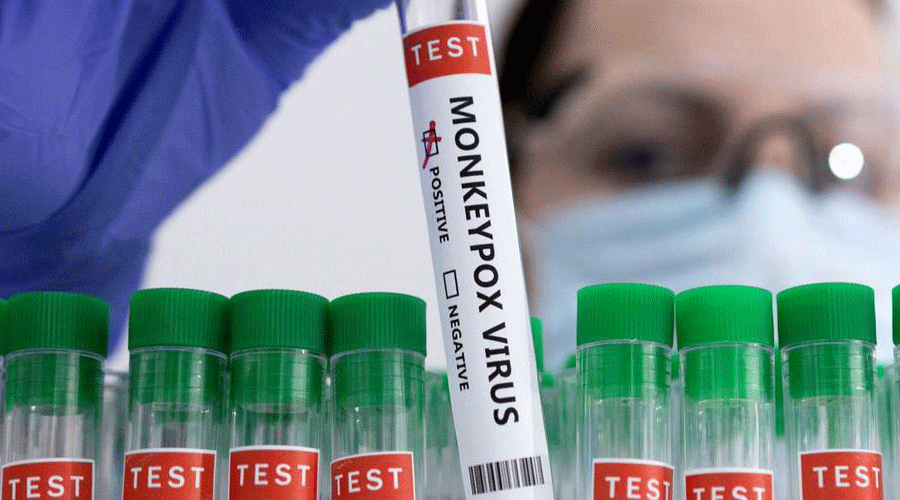The Union health ministry on Thursday documented India’s first monkeypox case in Kerala’s Kollam district and alerted all states to enhance surveillance and preparedness to detect and manage the infection.
The ministry has sent a central team to Kerala to support public health interventions and investigate the case after the National Institute of Virology, Pune, confirmed the infection in a person who had returned from the UAE.
Health authorities in Kerala have admitted the patient in a hospital after he showed symptoms, health minister Veena George had said earlier on Thursday, a PTI report from Thiruvananthapuram said. While abroad, he had been in close contact with a monkeypox patient, the minister said.
The World Health Organisation has documented over 6,000 lab-confirmed monkeypox cases and three deaths from 59 countries between January 1 and July 4 this year, and researchers are trying to understand what has triggered this unprecedented global outbreak.
“This is the first time local transmission of monkeypox has been reported in newly affected countries without epidemiological links to countries that have previously reported monkeypox in west or central Africa,” the WHO said on July 7.
Monkeypox is a viral disease with symptoms similar to smallpox — rash and blisters with or without flu-like symptoms — but with less severity.
Experts say monkeypox is potentially easier to contain than Covid-19 because it spreads from person to person through direct contact with the rash, scabs or body fluids, respiratory secretions during prolonged face-to-face contact, or intimate physical contact. But the Covid-19 coronavirus, also expelled in respiratory secretions, spreads through the air.
Union health secretary Rajesh Bhushan in a note sent to all states underlined key public health measures for early detection and rapid isolation of suspected or confirmed cases, reiterating guidelines the ministry had released on May 31.
Bhushan’s note has underlined the need for intensive risk communication directed at doctors, other healthcare workers and the general public on preventive strategies, prompt reporting of symptoms and cases and isolation and case management.
“Hospitals must be identified and adequate human resource and logistic support should be ensured at identified hospitals to manage suspect or confirmed cases,” Bhushan wrote. Patients should be isolated until all lesions have resolved and scabs have completely fallen off.
Among the 4,406 patients with monkeypox worldwide until July 4 whose sex was documented, 4,385 (99.5 per cent) were men. And among the 2,025 cases whose sexual orientation was recorded, 1,214 (60 per cent) were identified as gay, bisexual or men who have sex with men.
The monkeypox virus is an animal virus. But scientists in Portugal had reported mutations might indicate “accelerated evolution” and possible adaptation to humans.











